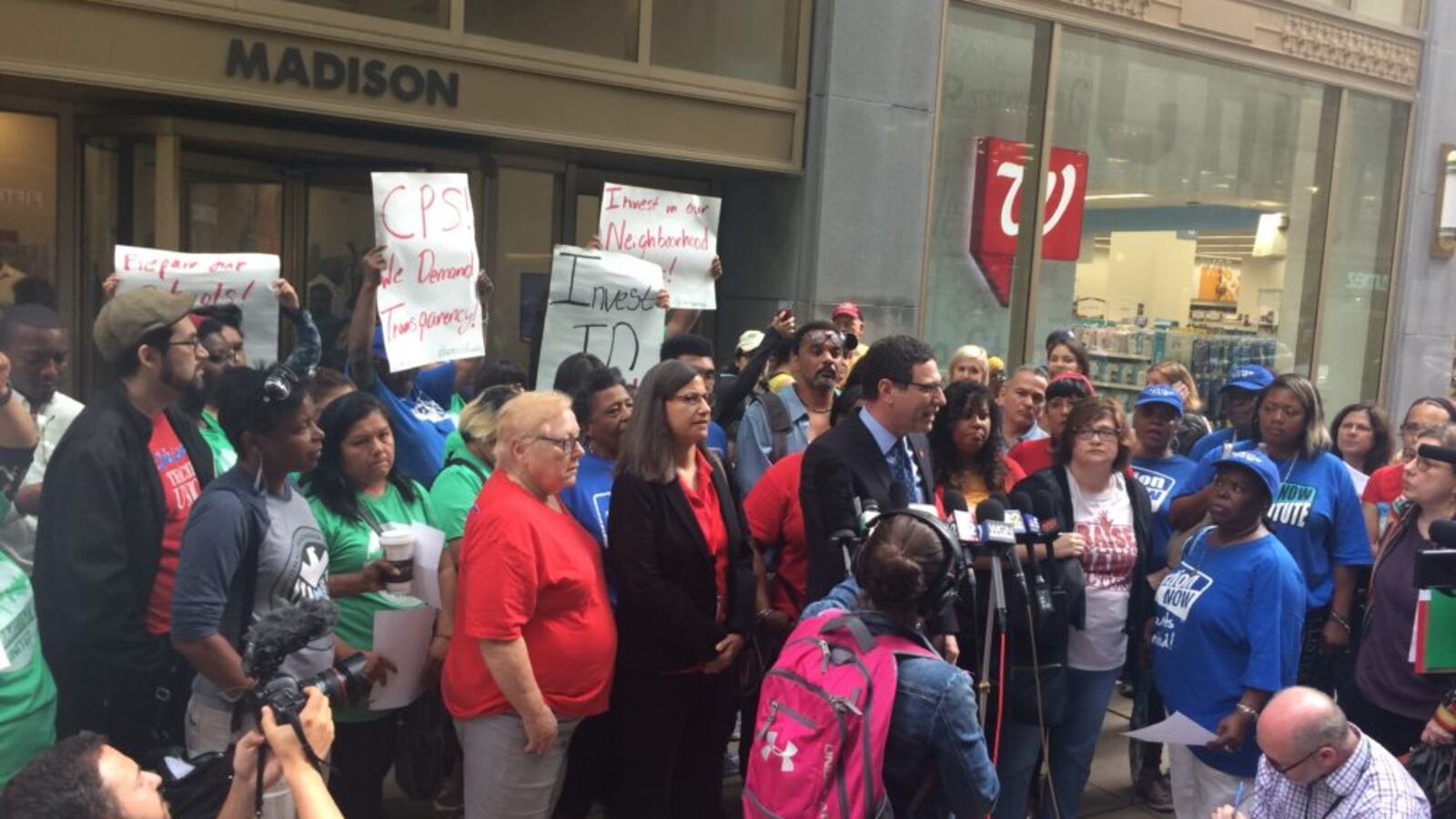Now that the Supreme Court has decided, in a 5-4 vote, the case of Janus v. AFSCME 31, the Chicago Teachers Union said it is anticipating “a hit.” “But not as a great as some other public sector unions,” says spokeswoman Christine Geovanis.
As a result of the ruling, school districts can no longer require their employees to pay negotiating fees to the unions that bargain on their behalf. Observers fear a steep decline in union membership and dues, which in turn will limit the unions’ political power.
Geovanis predicts that, now that the case has been decided, Janus proponents will aggressively push union members to stop paying dues. That has happened in states like Michigan, she said.
The Chicago Teachers Union passed an operating budget in June of $26.5 million. The budget is down by $3 million from the previous year. The CTU says it is has been “realigning” its staff internally and moving some positions to its foundation side; staffing is down from 61 budgeted positions to 50.
As for other ways the case could impact schools, experts say teacher pipelines could suffer, especially if unions are unable to secure regular salary increases, professional development and supplies and materials. Chalkbeat Chicago wrote more about the impact to schools here.
Martin H. Malin, a law professor at Chicago-Kent College of Law and director of the Institute for Law and the Workplace, told Chalkbeat in early June that he expected the CTU to lose funds and members, but that the union is well-equipped to rebound.
“They do a great job, though, of internal organizing,” Malin said.
CTU Vice President Jesse Sharkey said this morning in a statement that the decision is also a blow to women, Black and Latinx families, whose paths to teaching jobs were forged by unions. “While today’s attack will hit all working families hard, in Chicago it will disproportionately hurt Black and Latinx households already reeling from the foreclosure crisis, cuts to social services, school closures, unrelenting violence and high unemployment.”
You can read the full opinion here.

